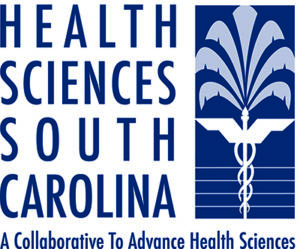With health catalyst partnership, Carolina eHealth Alliance can improve SC health outcomes
June 13, 2019Facilitated by Health Sciences South Carolina, CeHA moves from internal infrastructure to commercial, cloud-based platform.
The use of electronic health information exchanges (HIEs) – which enable doctors and other healthcare providers to securely share patient health information electronically – has risen across the nation in recent years, though there’s still room for improvement in terms of how these systems are used for maximum impact.
The Carolina eHealth Alliance (CeHA) is a South Carolina-based private federated health information exchange established more than a decade ago to enhance the quality of care and improve patient outcomes for South Carolinians. It provides real time health information exchange in the Charleston area linking Emergency Departments (EDs) and inpatient physicians at four hospital organizations: Medical University of South Carolina (MUSC), Roper Saint Francis, Trident Health, and East Cooper Medical Center.
Through enhanced access to a patient’s medical record and clinical information, irrespective of treatment facility or location, care is improved by avoiding duplicative testing, excessive consults, and unnecessary admissions, saving precious time and lowering costs for both providers and patients.
Health Sciences South Carolina (HSSC) began providing administrative and technical support services to CeHA in December 2015. Since that time, a need has arisen for an affordable, scalable solution to help facilitate the move from an aging, internally-developed and maintained infrastructure to a commercialized, cloud-based platform. In June 2019, CeHA transitioned to Health Catalyst Interoperability (HCI), formerly the Medicity Network, whose clients include hospitals and regional and state-wide HIEs across the country. Through HCI, these connected communities share and exchange clinical transactions, providing necessary data foundation and integrated workflow solutions.
And that latter part is a huge motivator for all involved, including Kenneth R. Deans Jr., CEO of Health Sciences South Carolina.
“With CeHA’s decade of demonstrated success, we know the impact is meaningful to the patients and public we serve. We have directly seen how our instances of information exchange support improved quality and efficiency, lower cost, and enhanced care coordination, ultimately supporting better population health. This includes noticing a direct correlation to the reduction in length of stay for both patients discharged from the ED or admitted to the hospital from it, demonstrating demonstrable impact and value,” said Deans.
About Health Sciences South Carolina (HSSC)
Health Sciences South Carolina (HSSC) is an inclusive public-private organization that brings together research universities, health systems, and other partners to further clinical research, population health, quality, and data exchange initiatives. Founded in 2004, the consortium includes the state’s three largest research universities (Clemson University, the Medical University of South Carolina, and the University of South Carolina) and the state’s largest healthcare systems (AnMed Health, McLeod Health, MUSC Health, Prisma Health-Midlands, Spartanburg Regional Healthcare System, and Self Regional Healthcare). Visit www.healthsciencessc.org














